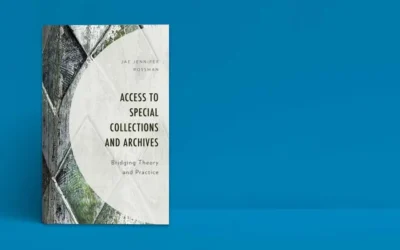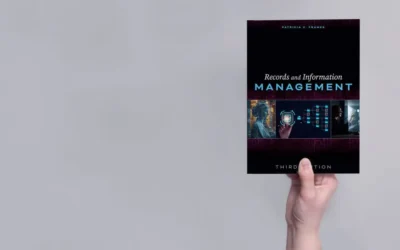Interview with the Author; Compact Copyright: Quick Answers to Common Questions
Lauren Hays
Sara R. Benson recently wrote Compact Copyright: Quick Answers to Common Questions, published by the American Library Association. Copyright is an important topic for librarians, and this book is a great resource for anyone needing to stay up-to-date. Below is my interview with Sara.
LH: Will you provide a brief summary of the book?
SB: This book is a quick overview of copyright tools and answers to common copyright questions all kinds of librarians receive. This book is helpful for all types of librarians and will assist librarians with their daily work. All kinds of librarians, from reference to digitization to school librarians, confront copyright in their work. Few librarians are experts, however. This book will help librarians find quick answers when they inevitably encounter copyright issues at work.
LH: Why did you decide to write this book?
SB: I really enjoy helping librarians to better understand copyright and how it applies to their work. However, I am unable to reach everyone at their specific time of need (i.e. when they have a particular copyright question). So, I was inspired to write a book that would be a helpful reference tool for librarians whenever they need help or have a particular copyright question. I also try to help librarians through my podcast called “Copyright Chat” which can be found at https://go.illinois.edu/copyrightchat
LH: Special librarians serve many unique communities; how will this book be beneficial for them? Are there certain sections you would recommend?
SB: Right. Many librarians, including myself, are specialists—my specialty just happens to be copyright law. This book will be helpful for special librarians when they engage in their everyday work because they will likely need to engage with preservation and archives (Section 108 of the Copyright Act), fair use (Section 107 of the Copyright Act), face-to-face teaching (Section 110 of the Copyright Act), and even international copyright issues. Instead of recommending a particular section, I recommend that librarians keep a copy of the book nearby for when a particular issue arises. The book is organized to give quick reference answers to common copyright questions, so I recommend turning to a particular chapter when necessary.
LH: As you know, more information is now accessed digitally. What are the top three copyright issues you would share with librarians who work in digital spaces?
SB: Yes! More and more resources are digital and librarians are engaging more and more with controlled digital lending and fair use on a daily basis. I think learning how to be comfortable with fair use is key. Fair use really helps librarians to do their daily work in a digital world. Licensing also plays a key role in the digital age and knowing how to retain all rights provided in the Copyright Act is also key. Keeping a clause in each license stating that all rights under the Copyright Act (such as fair use, inter-library loan, and more) are reserved notwithstanding any clauses to the contrary is key as well. Last, know your Section 108 rights and remember that fair use extends those rights.
LH: What recommendations do you have for librarians who need to stay up-to-date on copyright?
SB: One of the best ways to stay up-to-date on copyright is to follow the U.S. Copyright Office. You can sign up on their website to get breaking news, and it is a really easy way to know what is happening with copyright. Here is the link: https://www.copyright.gov/subscribe/
Lauren Hays
Lauren Hays, PhD, is an Assistant Professor of Instructional Technology at the University of Central Missouri, and a frequent speaker on topics related to libraries and librarianship. Her professional interests include information literacy, educational technology, library and information science education, teacher identity, and academic development. Please read Lauren’s other posts about skills for special librarians. And take a look at Lucidea’s powerful integrated library systems, SydneyEnterprise, and GeniePlus, used daily by innovative special librarians in libraries of all types, sizes and budgets.
Similar Posts
Texas Archive of the Moving Image: Interview with the Digital Archivist
I recently interviewed Grace Muñoz about her work at the Texas Archive of the Moving Image. Her work on improving the discoverability of the multimedia collection is fascinating.
Interview with Author and Librarian Dr. Jae Rossman on Special Collections and Archives
Dr. Jae Rossman wrote Access to Special Collections and Archives, available now from Rowman and Littlefield. The book is an excellent resource for special librarians who work with special collections and archival materials.
Interview with the Author: Dr. Patricia Franks on Records and Information Management
Dr. Patricia Franks is the author of Records and Information Management, now with an upcoming third edition to be published by ALA Neal-Shuman in the spring of 2025. My interview with her follows.
Are There Drawbacks to Using GenAI for Research?
Researchers must take responsibility for understanding how GenAI works and closely review literature search results before relying on them. Let’s take a look at three major drawbacks for researchers and special librarians to consider when leveraging or recommending GenAI platforms.




Leave a Comment
Comments are reviewed and must adhere to our comments policy.
0 Comments